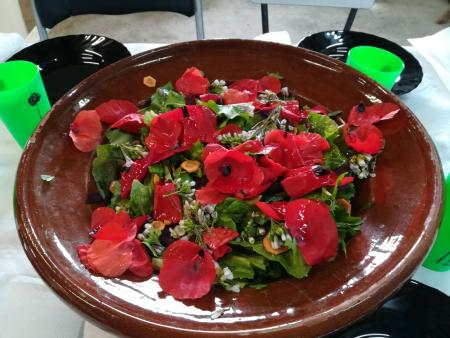
Objective:
Wild species must be recovered and their uses incorporated daily as normal. We must document the traditional uses of vegetation and promote actions aimed at citizens to publicise them. The research and dissemination axes are essential, but they must be accompanied by the development of business models that also allow the commercialisation of products. In Catalonia (Spain) there are several associations and companies that work to value them, either in the gastronomic field or as a tourist activity.
Context:
Food is not only nourishing but also drinking, seasoning and preserving. The role of wild plants in food, linked to local popular knowledge, is still relevant in Catalonia. A Ratafia, traditional liquor from Catalonia, contains more than 100 different plants. The coscoll (Molopospermum peloponnesiacum) or the xicoina (Taraxacum dissectum) are much appreciated as a salad. Thyme soup (Thymus vulgaris or Th. serpyllum) is common in every house. The wild species that in a context is a weed, can be useful and should not be forgotten or belittled.
Contacts:
Eva Moré Palos, eva.more@ctfc.cat, http://apsb.ctfc.cat
Further information:
Garnatje, T.; Muntané, J.; Parada, M.; Rigat, M.; Vallès, J. Plantes alimentàries del Pirineu català. Ed. Farell. 2012.
Col·lectiu Eixarcolant https://eixarcolant.cat/
ARÇ - Diada Fruits i Herbes Oblidades https://www.facebook.com/Diadafruitsoblidats/
El Mercat de les espècies http://www.eltrill.org/mercat-deles-especies/
Remeiart http://remeiart.cat/
Mercat de les herbes de la Ratafia http://ratafia.cat/
Espècies a mà https://www.facebook.com/EspeciesaMa
Els Corremarges https://elscorremarges.wordpress.com
La Caléndula https://www.iolandabustos.com/
https://www.lavanguardia.com/comer/siguela/20190508/462097278689/iolanda-bustos-la-calendula-chef-restaurante-biodinamica.html
Naturalwalks http://naturalwalks.com/